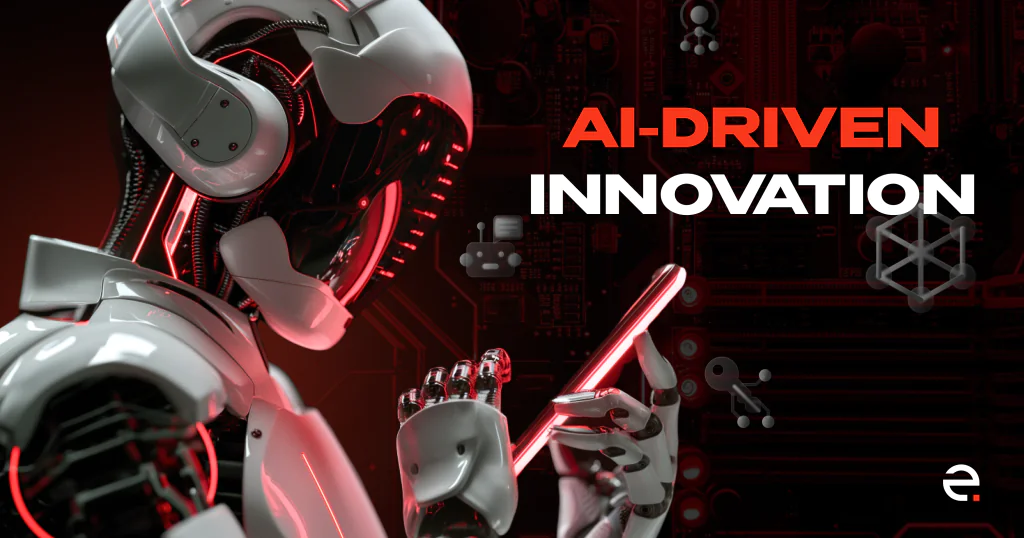Online Learning and AI: Transforming E-Learning Platforms
Introduction
The digital revolution has transformed the way we learn, and at the heart of this transformation lies artificial intelligence (AI). Online learning, already a rapidly growing industry, has reached new heights with AI’s integration into e-learning platforms. By personalizing education, automating routine tasks, and offering data-driven insights, AI is shaping the future of education. This article explores the ways AI is revolutionizing e-learning platforms, the benefits it brings, and the challenges it poses.
The Role of AI in Online Learning
AI technologies have become indispensable in enhancing the effectiveness and efficiency of online learning platforms. Here’s how AI is playing a critical role:

1. Personalized Learning Experiences
AI-powered systems analyze individual learning patterns, preferences, and abilities to create personalized learning paths. These tailored experiences ensure that learners receive the most relevant content at the right pace.
2. Intelligent Tutoring Systems (ITS)
AI-based tutoring systems provide real-time assistance, simulate one-on-one interactions, and address learners’ specific questions or difficulties. Examples include chatbots and virtual tutors.
3. Content Recommendation
AI algorithms suggest courses, modules, and resources based on a learner’s previous activities, interests, and performance. Platforms like Coursera and Khan Academy utilize this feature to enhance user engagement.
4. Adaptive Assessments
AI enables dynamic assessments that adjust in real-time based on a learner’s performance. This ensures that evaluations are accurate and reflect the learner’s true understanding.
Benefits of AI in E-Learning Platforms
The integration of AI in e-learning platforms brings numerous advantages:
1. Improved Accessibility
AI tools like speech-to-text, language translation, and screen readers make education more accessible to learners with disabilities or those who speak different languages. This inclusivity broadens the reach of online education.
2. Efficiency for Educators
By automating routine tasks such as grading, attendance tracking, and progress monitoring, AI allows educators to focus more on teaching and mentoring.
3. Data-Driven Insights
AI analytics provide valuable insights into learner behavior, identifying strengths, weaknesses, and engagement patterns. Educators and institutions can use this data to improve course design and delivery.
4. Cost-Effectiveness
AI reduces the need for physical infrastructure and enables scalable solutions, making education more affordable for institutions and learners alike.
5. Enhanced Engagement
Gamification and interactive AI tools keep learners motivated and engaged by incorporating elements such as quizzes, rewards, and virtual simulations.
AI-Driven Innovations in Online Learning
The advancements in AI have led to groundbreaking innovations in e-learning platforms:

1. Natural Language Processing (NLP)
NLP-powered tools, such as Grammarly and Duolingo, enhance language learning by analyzing text, providing real-time feedback, and enabling conversational practice.
2. Virtual Reality (VR) and Augmented Reality (AR)
AI integrates with VR and AR to create immersive learning environments, allowing learners to explore complex concepts and scenarios interactively.
3. Predictive Analytics
AI algorithms predict learner outcomes and suggest interventions to prevent dropouts or improve performance. For instance, platforms can identify at-risk students and provide timely support.
4. Automated Content Creation
AI tools generate quizzes, summaries, and study guides based on course materials, reducing the workload for educators while ensuring consistent quality.
Challenges of Integrating AI in E-Learning Platforms
Despite its transformative potential, AI in e-learning faces several challenges:
1. Data Privacy and Security
AI systems require vast amounts of data, raising concerns about data privacy, security breaches, and misuse of personal information.
2. High Implementation Costs
Developing and deploying AI technologies can be expensive, making it challenging for smaller institutions to adopt.
3. Ethical Concerns
The use of AI raises ethical questions, such as algorithmic bias and the potential replacement of human educators.
4. Dependence on Technology
Over-reliance on AI may lead to reduced human interaction, which is a crucial aspect of effective learning.
5. Digital Divide
Not all learners have access to the internet or AI-enabled devices, creating disparities in education quality.
The Future of AI in Online Learning
As technology evolves, the role of AI in online learning is set to expand further:
1. Hyper-Personalized Learning
Future AI systems will use advanced algorithms to create even more personalized learning experiences, catering to the unique needs of each learner.
2. Lifelong Learning Platforms
AI will power platforms that support continuous education and skill development throughout an individual’s life.
3. Global Collaboration
AI-driven platforms will facilitate international collaborations, connecting learners and educators from diverse backgrounds.
4. AI-Generated Courses
AI will create entire courses autonomously, including video lectures, assignments, and interactive modules.
5. Ethical AI Frameworks
Efforts to address ethical concerns will result in AI systems that are transparent, unbiased, and respectful of user privacy.
Conclusion
AI is undeniably transforming online learning platforms, making education more personalized, efficient, and accessible. While challenges like data privacy and ethical concerns persist, the potential benefits far outweigh the drawbacks. By embracing AI responsibly, educators and institutions can create innovative learning experiences that empower learners worldwide. As we move forward, the collaboration between technology and education will continue to shape a brighter and more inclusive future for e-learning.


